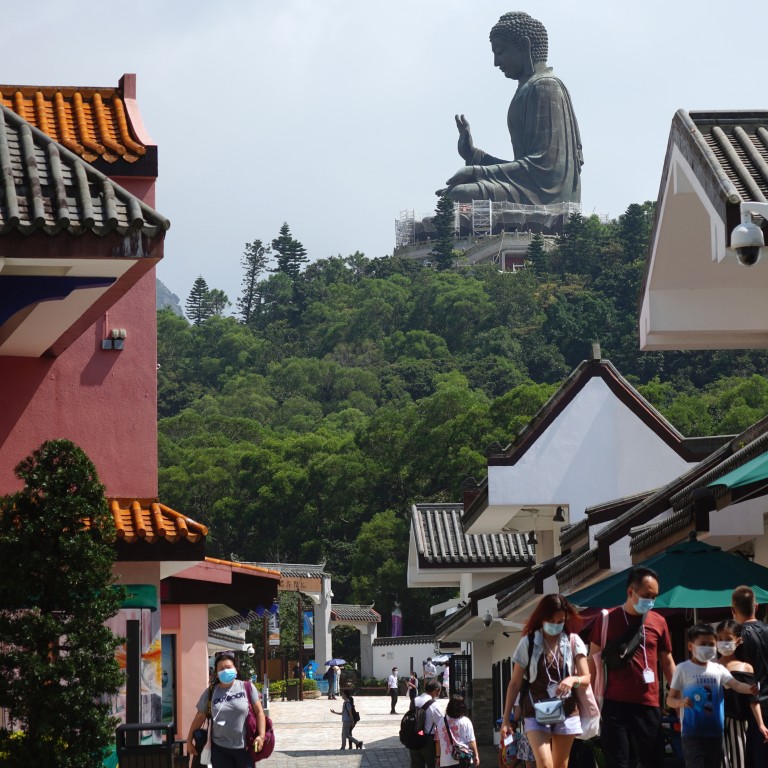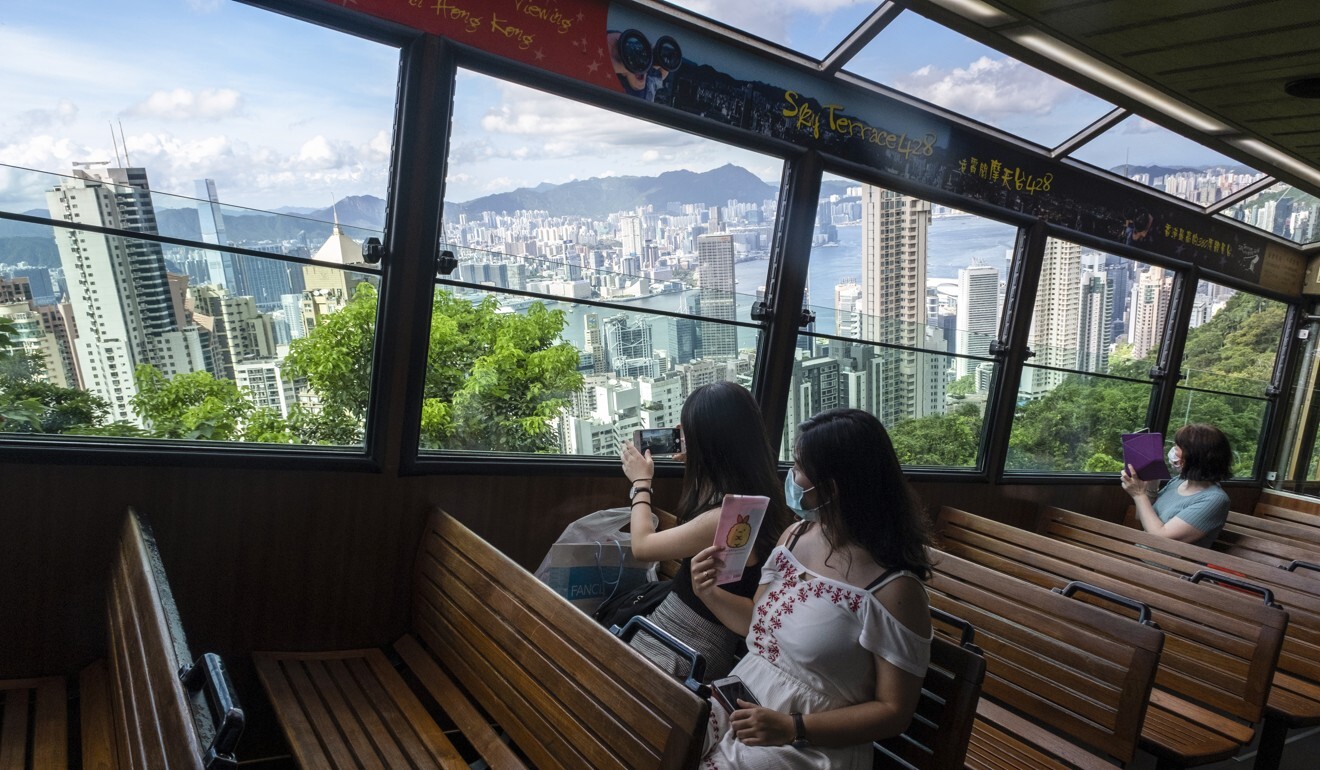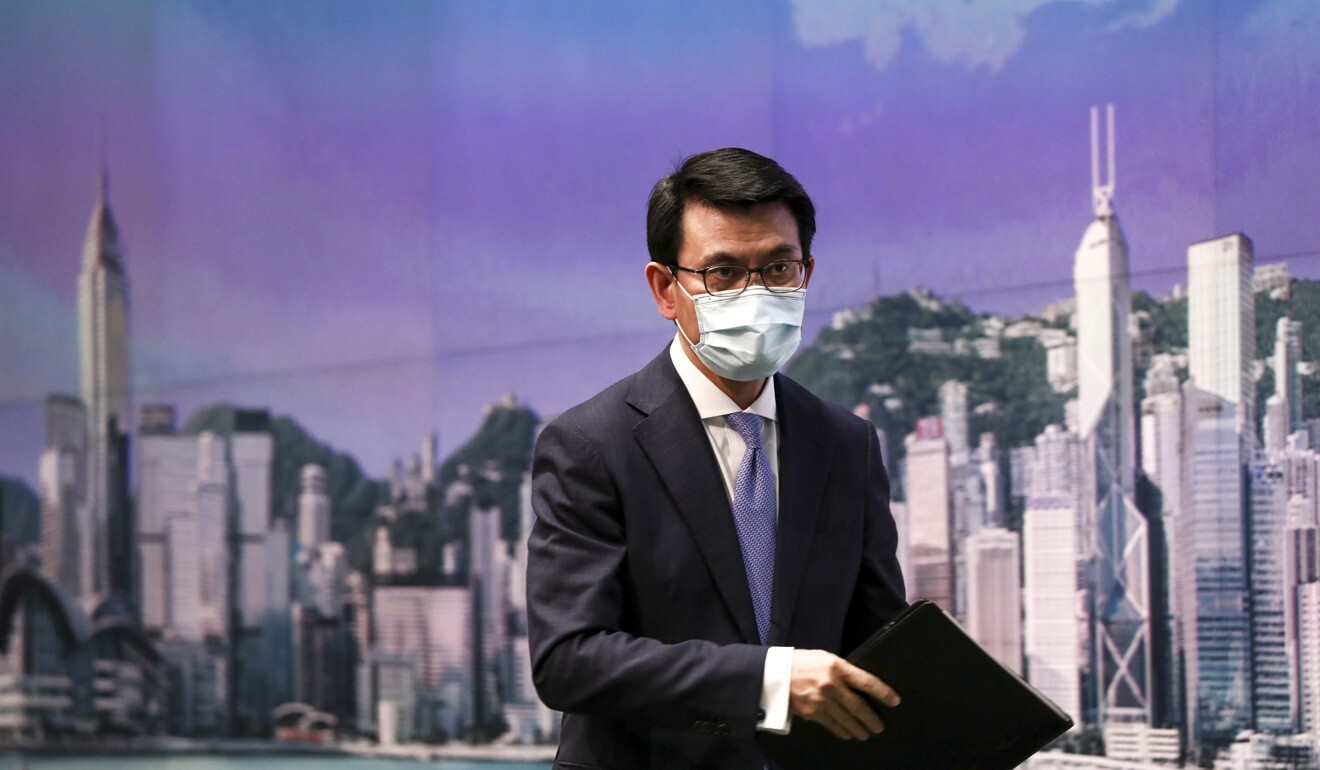
Tourism sector hails Hong Kong-Singapore bubble as ‘big step’ for city’s coronavirus-battered economy
- Local travel agencies are already brainstorming ways to capitalise, though many believe business travellers will be first to make the trip
- Hopes high scheme will be a success, paving way for similar travel corridors with other destinations
Some industry insiders on Thursday said they would look into developing hotel and local tour packages for travellers when they had more details from the government about the plan, and focus on those not coming in group tours.
They also predicted business travellers would be the first to use the scheme, which will reconnect the two cities after months of border closures by exempting residents from both sides from any form of quarantine.

“If this plan can really be introduced, it will be a small step forward under the pandemic. But in terms of the revival of the Hong Kong economy, it’s a big step,” said Michael Li Hon-shing, executive director at The Federation of Hong Kong Hotel Owners.
“If this arrangement can apply to other destinations just like what we do with Singapore, then Hong Kong will not just be a pool of stagnant water any more.”
He added his sector would brainstorm business ideas with other tourism firms when they had more concrete details about the landmark Covid-19 travel arrangement.
The in-principle agreement to establish a bilateral travel bubble between the two leading Asian air hubs was possibly the world’s first two-way arrangement of its kind, according to Singapore’s transport chief.
Hong Kong, Singapore reach agreement on two-way, quarantine-free travel bubble
Announcing the plan earlier on Thursday, Hong Kong commerce minister Edward Yau Tang-wah said travellers would need to prove they had tested negative for the coronavirus, but there would be no restrictions tied to the purpose of their travel.
Quarantine is eliminated for both sides under the deal, while airlines must operate dedicated routes on which transit passengers are not allowed.
Travellers can move freely in either city and do not have to provide a predetermined itinerary, but protective mechanisms are to be put in place to allow changes or even a suspension of the bubble in the event of a rebound in Covid-19 infections.
In 2019, Hong Kong had more than 450,000 arrivals from Singapore, according to the city’s tourism board. Its counterpart in the city state said it had 489,000 visitors from Hong Kong the same year.
When there is no other border reopening with other destinations, then the focus may shift to Singapore ... Of course, it will depend on the cost of the virus tests
In the first eight months of 2020, 22,590 people visited Hong Kong from Singapore, a drop of 93.7 per cent on the same stretch a year ago. Overall, Hong Kong’s tourist arrivals collapsed 91.9 per cent to 3.54 million over the period.
Welcoming Thursday’s news, tourism lawmaker Yiu Si-wing said he believed business travellers or those hoping to visit relatives would be among the first to fly between the two cities and that the arrangement could boost travel agencies’ business.
Yiu noted Singapore was not among the most popular outbound travel destinations for Hong Kong traditionally, so the number of visitors may not be huge.

“But when there is no other border reopening with other destinations, then the focus may shift to Singapore, and the demand may still be big at one point. Of course, it will depend on the cost of the virus tests,” he said.
Yiu expected the visitor flow from both sides would initially be just 10 to 20 per cent of normal levels, with the final figure partly determined by the required procedures, the number of flights and the transport arrangements.
He also expressed hope the scheme could pave the way for more cross-border travel schemes for the city. “The approach can be a reference for other interested countries,” he said. “For the planned arrangement with the mainland, it may help accelerate its implementation.”
Hong Kong has been trying since June to launch a health code system using QR codes to certify that virus-free residents can visit Macau and Guangdong safely as part of plans to ease border restrictions.
However, plans for the health code, which would allow travellers to skip quarantine, were stalled when Hong Kong was hit by a third wave of Covid-19 infections in July.
Stricken tourism industry cannot wait for mainland visitors to return, but will they come back?
Ricky Tse Kam-ting, founding president of the Hong Kong Inbound Tour Operators Association, noted most Singaporean tourists in Hong Kong in the pre-pandemic days were those travelling without a tour group, aside from some business visitors.
He said agencies would get in touch with their counterparts in the city state as well as hotels in Hong Kong after getting more information from the government.
“We will have to talk to the hotels and send our package details to the travel agencies there … so that they can put it on sales,” he said.
Timothy Chui Ting-pong, chief operations officer at the Taiwan Good Travel Company, said his business would try to explore the possibility of running local tours for the potential visitors.
More bad news for battered tourism sector, with August arrivals down nearly 80 per cent from July
Meanwhile, independent analyst Brendan Sobie, from Sobie Aviation, said it was too early to quantify what upside impact travel bubbles would represent for airlines.
“But I’m confident the travel bubble with Hong Kong will have a much more significant impact than any of the green-lane arrangements Singapore has forged so far,” he said. “For both Hong Kong and Singapore, this is important, as it is likely to be followed by similar agreements with other countries.”
Singapore’s so-called green lanes target very specific groups and come with numerous restrictions.
Hong Kong remains in a deep recession amplified by a Covid-19 crisis that has hammered tourism, aviation and retail businesses. The city’s gross domestic product contracted 9 per cent in the second quarter year on year, following a 9.1 per cent dip in the first quarter.
Additional Reporting by Danny Lee

